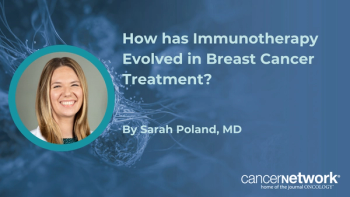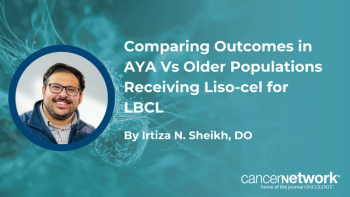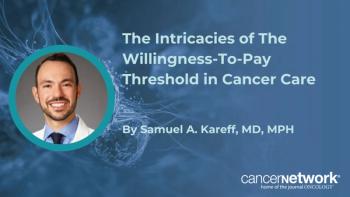
Oncology NEWS International
- Oncology NEWS International Vol 10 No 12
- Volume 10
- Issue 12
Dr. Rabson Named Acting Director of the National Cancer Institute
BETHESDA, Maryland-Secretary of Health and Human Services Tommy G. Thompson has named Alan S. Rabson, MD, deputy director of the National Cancer Institute since 1995, to serve as acting director of the Institute. Dr. Rabson will fill the post formerly held by Richard D. Klausner, MD, until a new director is named. Dr. Klausner resigned to become president of the new Case Institute of Health, Science, and Technology.
BETHESDA, MarylandSecretary of Health and Human Services Tommy G. Thompson has named Alan S. Rabson, MD, deputy director of the National Cancer Institute since 1995, to serve as acting director of the Institute. Dr. Rabson will fill the post formerly held by Richard D. Klausner, MD, until a new director is named. Dr. Klausner resigned to become president of the new Case Institute of Health, Science, and Technology.
Dr. Rabson came to the National Institutes of Health in 1955 as a resident in pathologic anatomy and joined the NCI a year later, where he pursued research in viral oncology. In 1975, he became director of NCI’s Division of Cancer Biology, Diagnosis, and Centers.
Articles in this issue
about 24 years ago
Elderly Colon Cancer Patients Benefit From Adjuvant Chemotherapyabout 24 years ago
Stromal Cells May Be Involved in Development of Breast Carcinomaabout 24 years ago
Intercultural Facts About Cancerabout 24 years ago
18-Gene Cluster Found in ER-Positive Breast Cancersabout 24 years ago
Viread OK’d for Treating HIV With Other Antiretroviralsabout 24 years ago
Surgeons in New York Operate on Patient in Franceabout 24 years ago
Fulvestrant Reduces Cell Turnover Index More Than Tamoxifenabout 24 years ago
New Lung Cancer Campaign Launchedabout 24 years ago
CPDR Updates Its Prostate Cancer WebsiteNewsletter
Stay up to date on recent advances in the multidisciplinary approach to cancer.













































